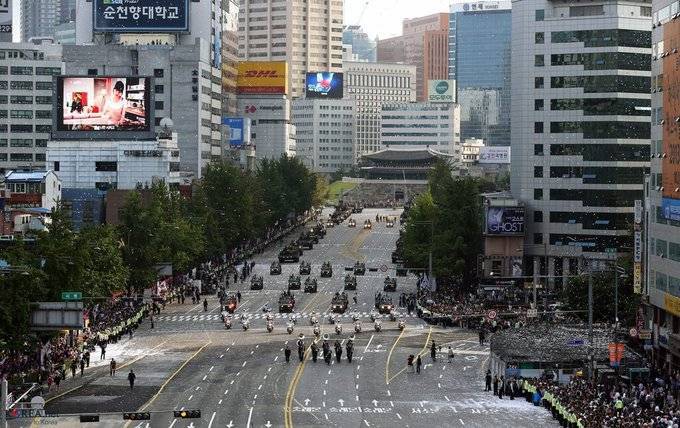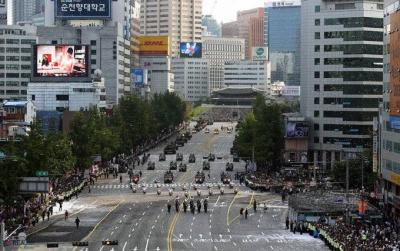South Korean President Yoon Suk Yeol urged his country's military today, Tuesday, to embody an "unwavering military spirit" and to undergo intensive training, in celebration of "Armed Forces Day." Yoon described North Korea's advanced nuclear program as "an existential threat to our people," but stated that "the South Korean military will respond immediately to any provocation from North Korea." The president reiterated that "if North Korea uses nuclear weapons, its government will collapse under a 'overwhelming response' from South Korean and American forces." He warned Pyongyang against the use of nuclear weapons and pledged to provide "more support to the military and defense sectors."
South Korea organized its first large-scale military parade in ten years, showcasing a range of weapons from ballistic missiles to tanks, parading through the streets of the capital, Seoul, as a demonstration of power. This military display coincides with "Armed Forces Day" in South Korea, a day that typically passes without major events, especially when compared to the massive ceremonies held by North Korea under leader Kim Jong-un, which feature strategic weapons like intercontinental ballistic missiles.
The Ministry of Defense stated that the all-day event involved thousands of soldiers, domestically produced tanks, and self-propelled artillery, along with the participation of 300 of the 28,500 American troops stationed in the country.
Additionally, South Korea announced the hosting of senior diplomats from China and Japan for a rare trilateral meeting aimed at alleviating Beijing's concerns about the strengthening cooperation between the two U.S. allies. The meeting aims to pave the way for the resumption of trilateral summit meetings among the leaders, which have been on hold since 2019 due to legal, diplomatic, and trade disputes between Seoul and Tokyo, stemming from issues dating back to the Japanese occupation of Korea from 1910 to 1945.




